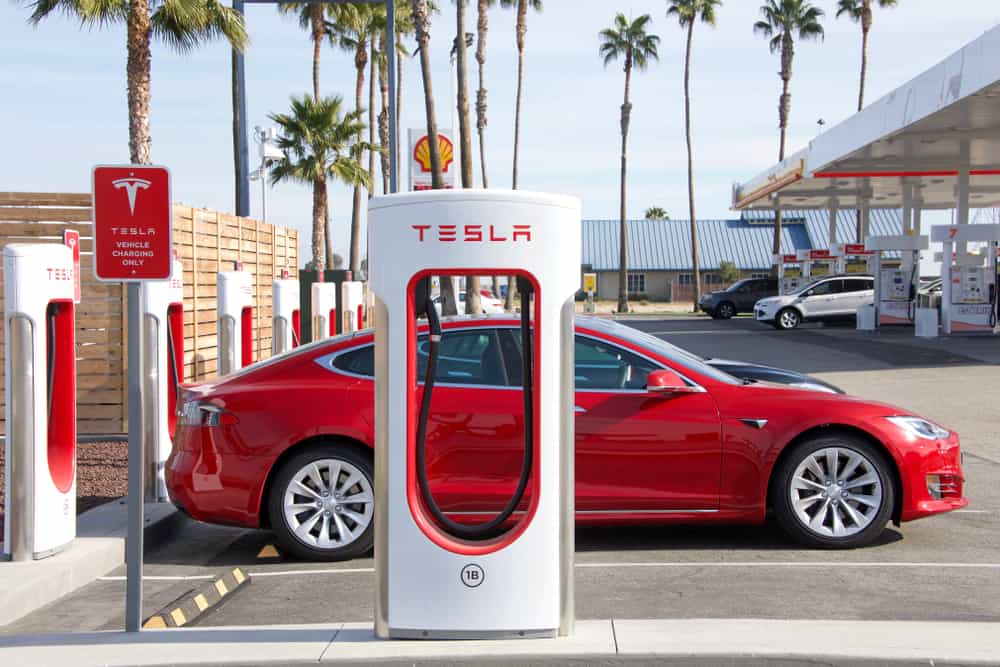
Good day,
Tesla is in the midst of updating its charging stations to accommodate double the power as before. The vehicles are also programmed to preheat its batteries just ahead of putting it down to charge, which Tesla mentions would altogether pull charging times down to around 15 minutes. Called the “V3 Supercharging network”, the infrastructure installation would go on till the end of this year, with the network expected to fit in twice as many cars each day to charge.
Tesla is currently locked in a territorial conflict for market domination with established OEM rivals like Chevrolet, Volkswagen, and Daimler steadily eating into the electric vehicle segment. The push will see Tesla’s supercharging stations deliver 250 kilowatts, a significant markup from the 120 kW that is delivered at the moment.
Did you know?
Italy is facing an olive oil crisis. The country recorded a 57% reduction in production over 2018 — the worst in 25 years. Extreme weather attributed to climate change; a fly infestation and the spread of Xylella fastidiosa cost the industry almost €1 billion.
Quotable:
“The fact is that Amazon has always been a logistics and supply-chain company. The greatest trick that Jeff Bezos ever pulled is allowing people to believe that he wants to create the everything store. Bezos has concentrated his investments around logistics and technology.”
– Michael Zakkour, the VP of global digital commerce and new retail at Tompkins International, told Business Insider.
In other news:
A stark divide in America’s retail industry is coming into focus
Amazon is still by far the leader in e-commerce, but Walmart, Target and Best Buy especially are increasingly challenging its dominance in online sales by using their physical stores to fulfill online orders. (New York Times)
Booming permian rewriting rules for global oil industry
Low-breakeven costs and rising output in the Permian Basin threatens OPEC’s dominance over oil markets. (Forbes)
Elon Musk’s Boring Company is working on a new ‘Loop’ network in Las Vegas
If everything goes according to plan, the first leg of the system would be operational at the Las Vegas Convention Center as soon as 2021. (Electrek)
Americans are abandoning public transit – but don’t blame Uber
A new report found that American bus ridership fell by 5 percent between 2016 and 2017. The country’s seven largest transit systems—Boston, Chicago, Los Angeles, New York, Philadelphia, New York, and Washington, DC—all lost riders that year, too. (Wired)
Why companies like Lyft and Uber are going public without having profits
The last time unprofitable companies went public at this rate was in 2000 — the year the dot-com bubble burst. (Recode)
Final thoughts:
In yet another instance of blockchain’s growing relevance in the maritime industry, the port of Marseille-Fos, the largest seaport in France, has joined a blockchain pilot on monitoring intermodal freight movement on the Mediterranean-Rhône-Saône axis (MeRS) transport corridor.
The project is expected to test data secureness within the blockchain, study on improving data transparency, and ascertaining the safety of cargo movement on the Rhône-Saône axis. The initial prototype is focused on allowing data sharing between interested parties through a blockchain-based platform. Through this project, the port of Marseille-Fos expects to gain better control and visibility on all the points of the supply chain, and if the technology is proven successful, it would be extended to other ports.
Hammer down everyone!










